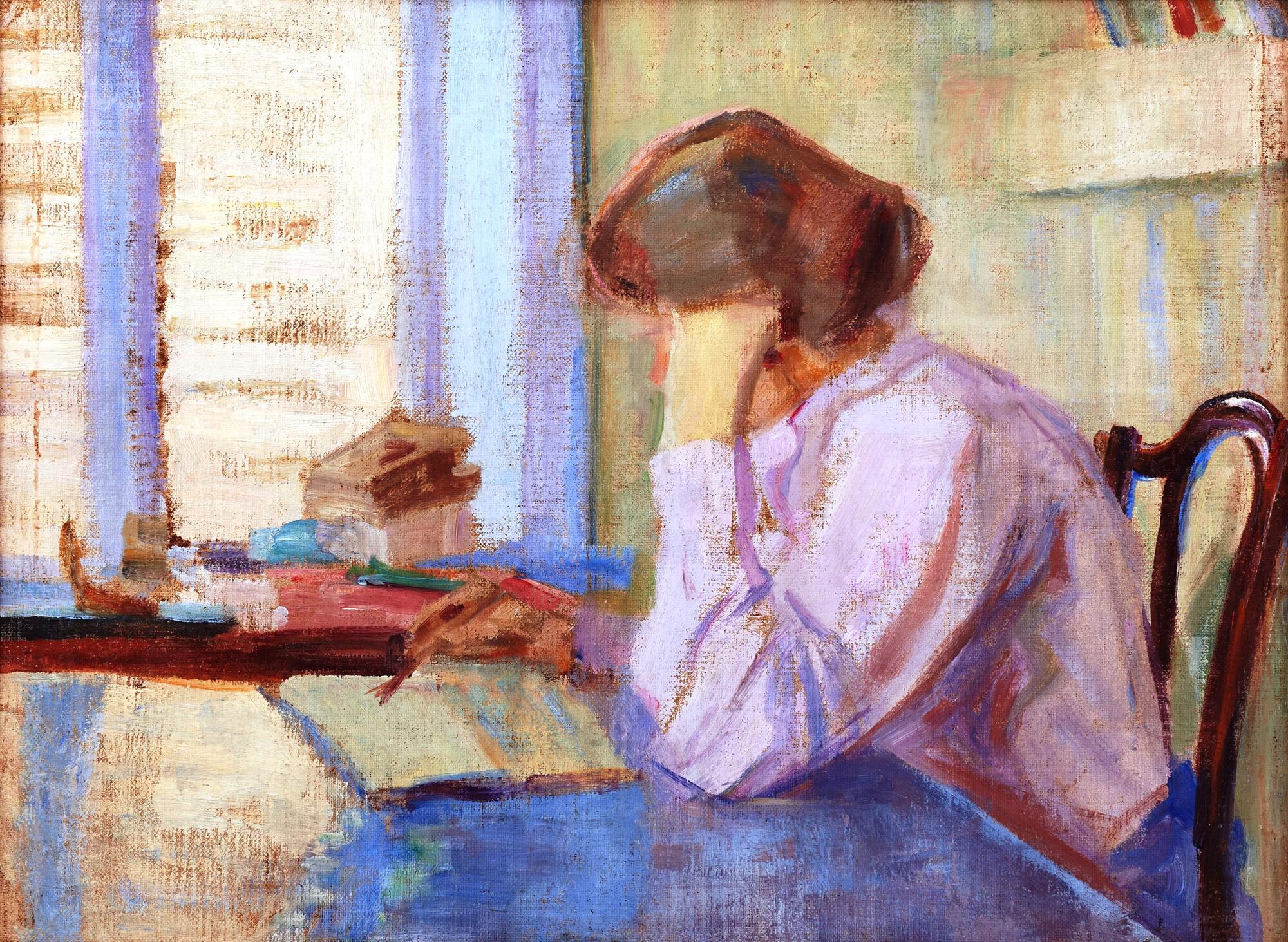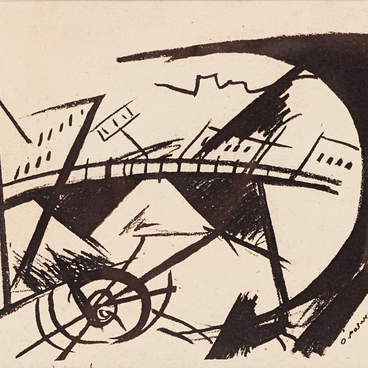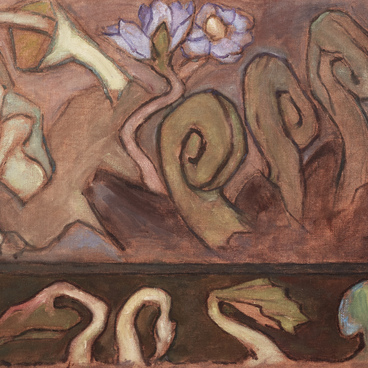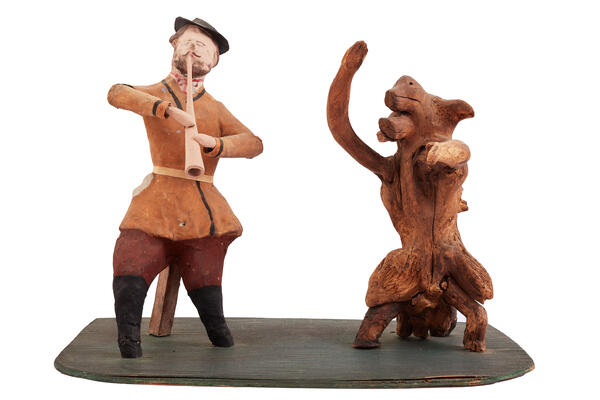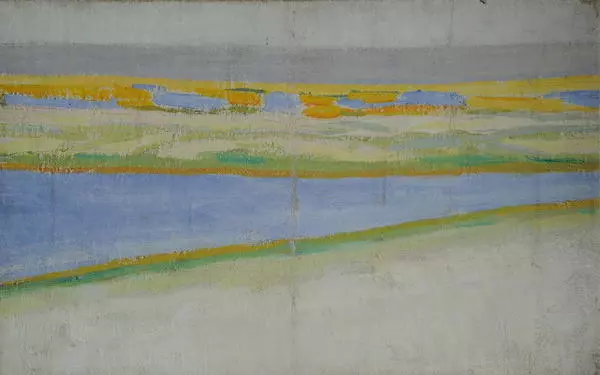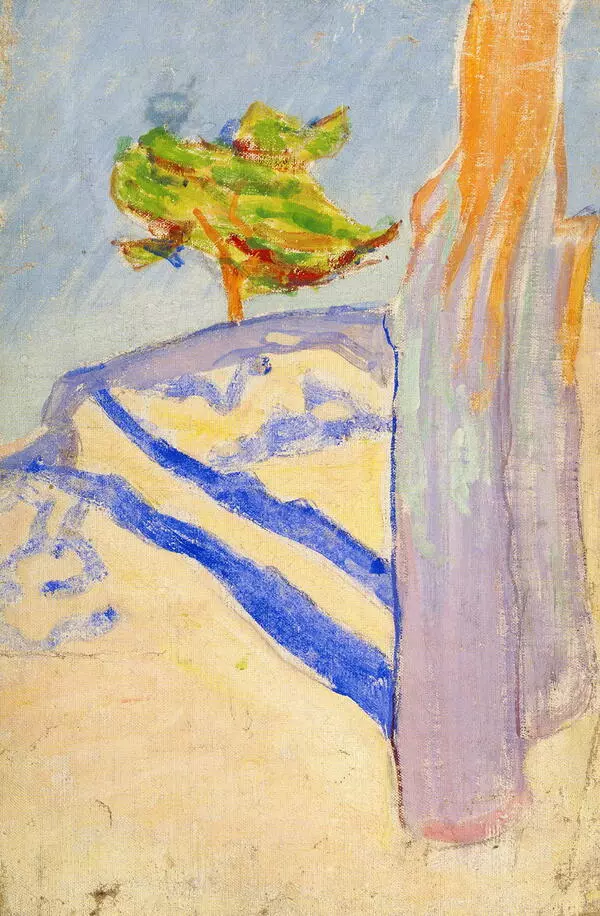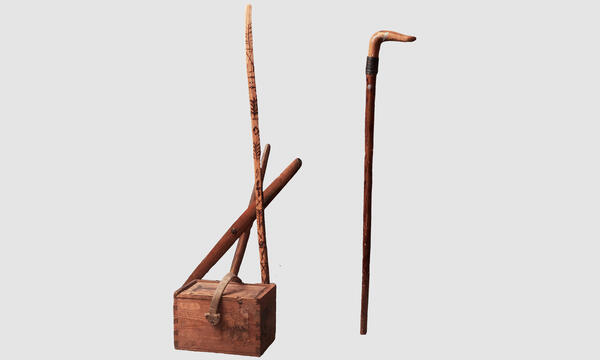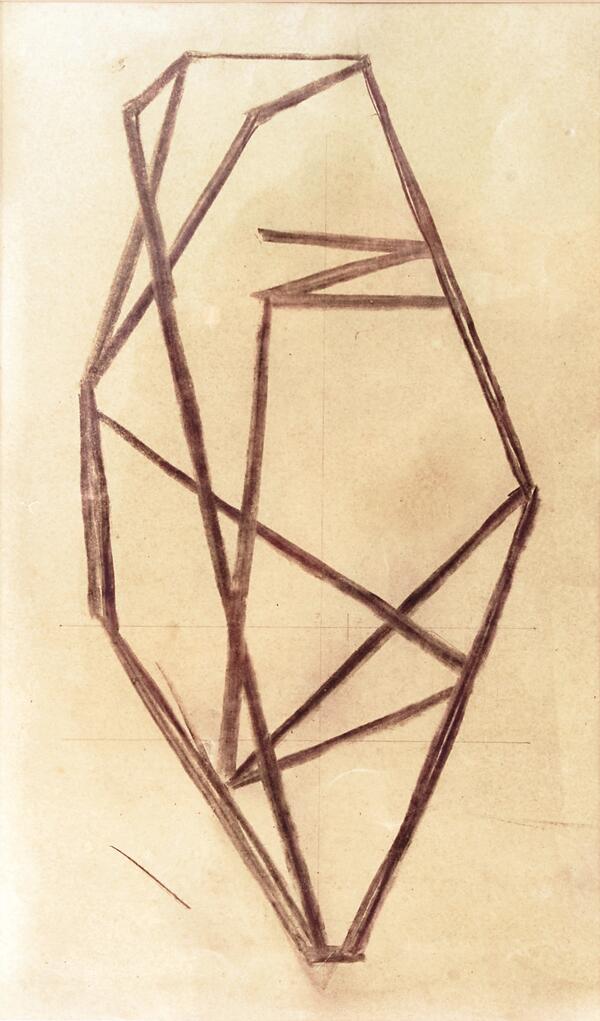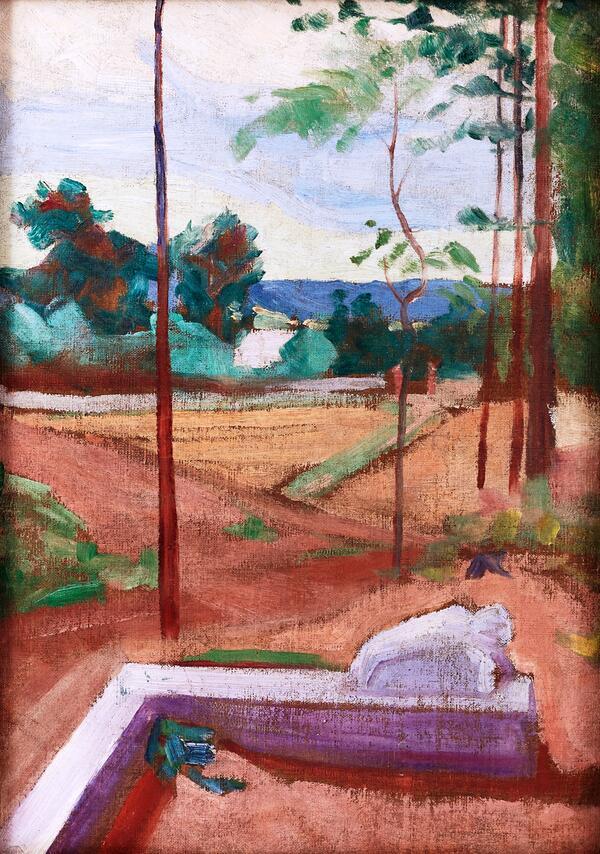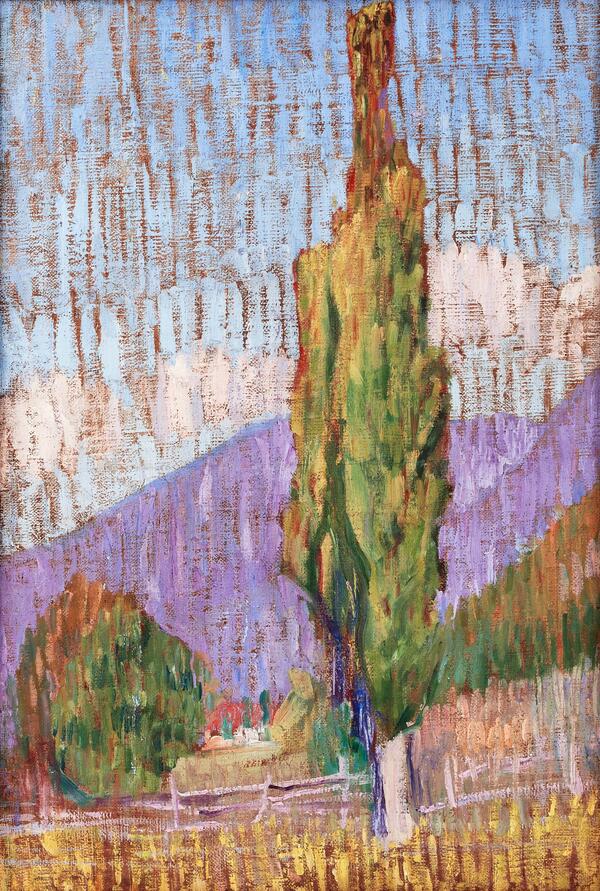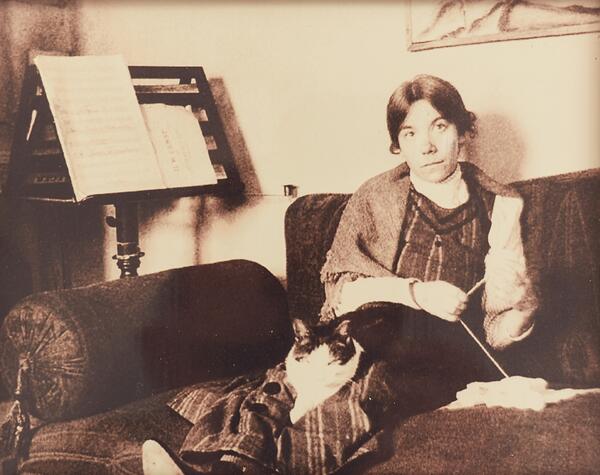Elena Genrikhovna Guro’s literary debut came in 1905 when her short story called “Early Spring” was published in the “Collected Works of Young Writers”. A little earlier, she had completed illustrations for the Kharkov edition of Georges Sand’s book “Tales of a Grandmother”. From that moment, she combined her two commensurable and inseparable passions — poetry and painting.
Mikhail Vasilyevich Matyushin wrote,Portrait of poetess and artist Elena Guro
Elena Guro’s evolution is in her great and constant gravitation toward nature and the earth. Almost none of the word-painters have described Reality the way she has. Both of those things are continually growing and improving over time. She mocks her idealist sister <…> and always finds something amusing or wrong about idealism. Her sarcasm is merciless. But she understands Schiller perfectly and adores him. As she grows and improves her skills, she will retain the rarely deep and true understanding of reality and its opposite — idealism.
Elena Guro developed artistic principles that had a great influence on the theories of her husband Mikhail Matyushin in the 1920s, as well as on the development of his painting school and his students, in particular Boris Vladimirovich Ender.
Mikhail Matyushin wrote,
She <…> adores the earth. But she can hear both the voices of the earth and the voices of the sky, which for her are one, and nobody else has yet surpassed her in the way she describes these complex things. She has brought Baron Krantz from ‘Autumnal Dream’ into her ‘Poor Knight’ and shows him leaving behind his ancestry and military service, despite his father’s wrath and reprisal. His love for the earth and all living things knows no bounds. He says that we must give back to the earth all the beauty that we have taken without appreciating or noticing it, that we have brutalized.
“The Poor Knight” became Elena Guro’s most major prose work. In 2009, the popular scientific edition “Russian Futurism: Poems. Articles. Recollections” was published in Saint Petersburg which cited Mikhail Matyushin’s memoirs,
In 1917, Maxim Gorky offered to publish Elena Guro’s last work ‘The Poor Knight’, which she had been working on for almost three years. Yekaterina Nizen and I carefully prepared the manuscript for printing, but the work was never published.
Mikhail Matyushin dubbed the poetess and artist “the cement of the Futurists”. He painted her portrait in 1906, two years after he and Elena met at Tsionglinsky’s studio. At the time the painting was made, Matyushin and Guro were already married.
